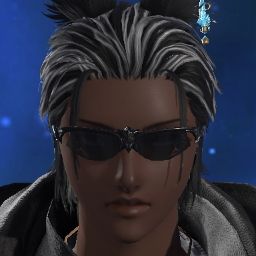We agree with the Cage. All guild translator are do the professional translating. All speak the 170 language but not speak the Japanese because no body learn the Japanese. Is why when native Japanese speaking on forum fact check guild with Japanese write we must explaining the Japanese script it is all wrong. Original story it is German. Why use the Japanese translate lmao.
Guild it here to tell the true story. In French translate of story all Scallion is die and is replace by the Solus King and the Princess Svelte Lana. Is true. In German story Venar is execute for the genociding and treasoning and insubordinating against the Solus King. Is true. In Portugese story is say the Garlemalding and the No Shadow God leader and the Solus King is the Herois of story and not do any of the war crime. Is true. Russian story tell love triangling of the Elibuss and the Adam and the Lahee uwu. It is beautiful story that bring tear to eye. Welsh story it will still be write because the name for Ishgart it have more letter than story of Heavenswart. Is sad English only speaker not know truth of other translate and not play 15 different version for the comparing so guild exploiting this to bring the truth of official No Shadow God fanfic to forum.
All these thing it is true because guild say it be true. Would not tell the lie on the general disgust forum it is most trusting news source for the FF14. Do not question translation from the randomizer language. It is the power of the google translator.
-
03-18-2023 05:16 PM #361Player

- Join Date
- Jun 2022
- Location
- We are from the Garlemalding
- Posts
- 166
- Character
- Graeham Graisse
- World
- Balmung
- Main Class
- Black Mage Lv 87
(4)Last edited by Graeham; 03-18-2023 at 05:27 PM.

~You may defeat us but our principal is in violet. Indivisible.~
~God King Solus and the Princess Svelte Lana~
-
03-18-2023 07:38 PM #362
I imagine to some degree that localization teams have it out for gamers because they view them as problematic and the enemy of the culture war. Thus they give a subpar experience and if you complain everyone just tells you to go play a game in Japanese or else you won't get your precious product at all.
(5)
-
12-11-2023 03:16 AM #363Player

- Join Date
- Mar 2023
- Location
- United States
- Posts
- 171
- Character
- Aknora Telkira
- World
- Balmung
- Main Class
- Summoner Lv 90
I genuinely don't like how different the English 'localization' is from the Japanese source material. I don't understand why more people aren't as upset about it, it genuinely makes it difficult to enjoy the story or take things seriously or feel immersed when what I'm reading is not what the original writers wrote.
I'm tired of having to look up what the proper translations are for dialog just so I can confidently know what's actually being said. It doesn't feel like I'm reading what the original writers wrote, it feels like some hackjob fanfiction iteration trying to correct something that was never broken or 'wrong' in the first place.
My issues with the localization of this game go further than just crappy dialog, though.
I think I speak for everyone when I say that a faithful translation of everything would have been better. Not a literal translation, but a proper re-telling that tries to be as 1:1 with the source material as possible without taking any unnecessary liberties. If it were just that, the people who praise the English localization wouldn't complain.
Audiences would just accept it as it is, and would enjoy it all the same, like they do with everything they consume. It's not their job to critique or have a meaningful opinion on things, otherwise they would be more concerned about the broader cultural implications of this phenomenon as a whole. We all (hopefully) remember 4Kids and how their stated goal was to make it so that way Japanese content would be indistinguishable from something whipped up by Americans for those respective audiences, going so far as to change names and censor so much to further that end. It was horrible, and insulting to the integrity of the content they shamelessly butchered, and it certainly contributed to a corporate culture which enabled the contractual breaches that lead to their imminent legal troubles and subsequent downfall.
I'm not trolling when I say this, but Westernization of Japanese media is probably one of the most pervasive forms of cultural gentrification (and erasure) out there. Because when it's run thru that filter, it's no longer the initial vision, it's someone else's re-telling of it because they thought you'd not like it as much. People in marketing look at localization like a sure-fire method of condensing a product to be enjoyable towards a foreign market, but what a lot of these talking heads fail to realize is that Japanese content is never going to be something that fits in with these markets as seamlessly as whatever is native or 'local'.
I'm hopeful that someone will put forth the effort to developing an add-on that fixes all of what Koji Fox and his merry band of revisionists broke, or that Square will consider the grievances of this part of their audience and just release a faithful translation option for those uninterested in localized content.
They already give players the option to have Japanese dialog in cutscenes and in audio, why not go further in that regard?
Bottom line is that the initial/original content of the game is fine on its own. It doesn't need to be ran through a bunch of filters just because a bunch of Westerners hired by SE think it would. The game and its content will continue to stand on its own merits without Koji Fox's garbage.(4)Last edited by Telkira; 12-11-2023 at 04:02 AM. Reason: 4kids explanation
-
12-11-2023 05:17 AM #364
Honestly I just think its the simple fact that many people (including me, Ive done this as well) just read way into much in the nitty, gritty details. Yes the story has some nuance and depth in some areas but something that Ive learned with rpg stories in general is that it mostly relies in common tropes (yes I know this is not exclusive to just fantasy stories) with expecting the viewer to throw their own meaning and opinion into it. This is why the conversation for specific parts of this story is so conflicted because not only is the story presented is decent enough to engage in the conversation but everyone has their own takes over it because the outline of parts of the narrative happens to be that simple.
(1)
-
12-11-2023 06:41 AM #365Player

- Join Date
- Mar 2016
- Posts
- 7,971
- Character
- Oscarlet Oirellain
- World
- Jenova
- Main Class
- Paladin Lv 100
They explained at one of the recent Fan Fests that it's not a direct translation because it wouldn't necessarily make sense to English speakers that way. They said that when you do this line of work you realize that localization "is the only way to do it".
Their goal is not strictly to say the same thing the original story writers wrote, but rather to produce the same emotions and feelings that the original story writers are trying to get out of the Japanese audience. Sometimes in order to do that, they have to change words, phrases, use common western sayings, or say things that westerners would be familiar with that are more likely to draw emotions from them.
Although they don't do this for sidequests and minor things necessarily, for the MSQ they sit down with the original story writers and make sure they understand the story properly and exactly what emotions or information those writers want to convey. They make sure they understand this because of the importance of the MSQ, especially Endwalker being the finale of the arc.
I don't think I would mind it, based on what we get when we put it into Google Translate. But they also seem confident in what they say about localization being the only way to do it.Audiences would just accept it as it is, and would enjoy it all the same, like they do with everything they consume.
Koji is no longer involved in that (although past stuff, obviously). He mostly does the vocals for the music and FF16. And as you mentioned, lots of people work on it, because they recently said that contrary to popular belief, one person can't handle all of the localization alone - and to reinforce that point they said they are recruiting.The game and its content will continue to stand on its own merits without Koji Fox's garbage.(3)
-
12-12-2023 01:03 AM #366Player

- Join Date
- Mar 2023
- Location
- United States
- Posts
- 171
- Character
- Aknora Telkira
- World
- Balmung
- Main Class
- Summoner Lv 90
I will have to fact-check you on whether they actually said that, it just sounds so wrong, but I guarantee you that taking the source material and warping it to such an egregious degree that this game's localizers have done is not "the only way to do things".
Arguing that is just so wrong that things like subtitled anime and fan-translations of manga/anime content wouldn't be watchable or enjoyable by foreign audiences.
They're playing a Japanese game, a game that's conceived and produced with Japanese audiences in mind, from things like visual appearances and aesthetics, to the names and roles of characters and places within the game's story. Localization apologists like to rebut this by arguing that the Localization team is all in-house and that Westerners help write and conceive things, but I guarantee you that their roles are severely diminished compared to that of the native Japanese staff members, otherwise they wouldn't have had to go over the heads of the higher-ups to censor Haurchefant. Trying to re-create and elicit those types of feelings in foreign audiences isn't going to work in the long-run because, at the end of the day, it's still a fundamentally foreign product.
People seem to think that machine-translation jobs are what people have in mind when they complain about the discrepancies and deviations with the Western localizations of the game. That would be stupid. Translating things from one language to another is about communication, and condensing what is being expressed or communicated into another language, hence why things may be 'lost in translation'.
But what a lot of people don't know is that things being lost in translation or not being properly communicated is a fault on the person doing the translation and their ability to act as a medium in this regard. I've seen enough complaints from users who are fluent in both Japanese and English to know that it can be done, hence why I keep using the phrase "faithful translation".(1)
-
12-12-2023 01:36 AM #367Player

- Join Date
- Mar 2023
- Location
- United States
- Posts
- 171
- Character
- Aknora Telkira
- World
- Balmung
- Main Class
- Summoner Lv 90
What's so disappointing is reading dialog in English and picking up on certain things that literally just don't sound right, given the actions and statements of other characters, or when certain things just don't align with what was observed or shown. The English text may overstate things, while the Japanese translations seem more reserved and measured, while still highlighting what is necessary to set the tone and let the player feel immersed.
The English tries to add more to it because they're afraid that doing more than is necessary won't be as compelling, which is where it feels more like revisionism than anything else.
It's especially more disappointing when you look at certain dialog trees for side quests when whole sentences or statements are changed.(6)
-
12-12-2023 02:11 AM #368
Traduttore, traditore.
All translation distorts the original. You can argue over what degree is acceptable, to what end, and what your preferences are - but any argument that a translation should be a perfect retention of meaning is prima facie absurd. You can't. You can drag an approximation of the meaning out of it, but you will always lose something in the exchange.(9)
-
12-12-2023 03:10 AM #369Player

- Join Date
- Jun 2015
- Posts
- 3,413
- Character
- Derio Uzumaki
- World
- Sargatanas
- Main Class
- Dark Knight Lv 100
My problem is them having key cutscenes that have no VA.
(0)
-
12-12-2023 03:25 AM #370Player

- Join Date
- Aug 2011
- Location
- Limsa Lominsa
- Posts
- 2,216
- Character
- Midi Ajihri
- World
- Hyperion
- Main Class
- Arcanist Lv 100
Then why are all of the in-game signs and even the map written in English using the Eorzean script?
Why are 95% of the songs in the game with lyrics sung in English and written by the previous English head localizer/lore guy?
Just because the game is made in Japan doesn’t mean the worldwide audience is secondary to the home audience either. Yoshi-P had his writers for FFXVI watch Game of Thrones and the English voices and facial captures were done before the Japanese version. It was also said somewhere that he recommended Japanese players to play the English version as well though I can’t find the source on that.(3)





 Reply With Quote
Reply With Quote









